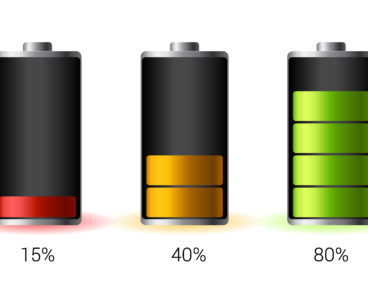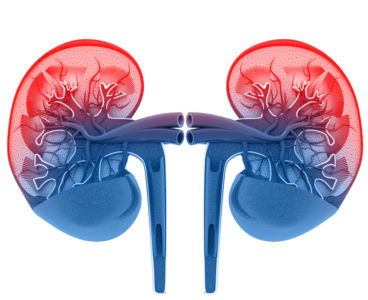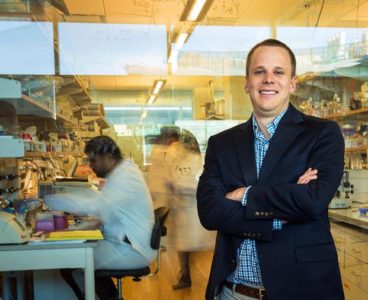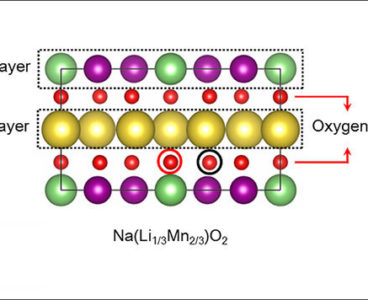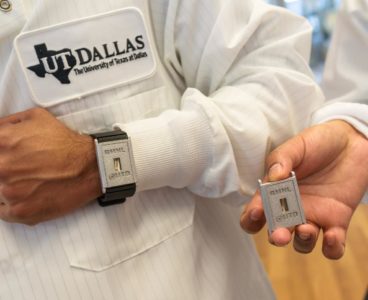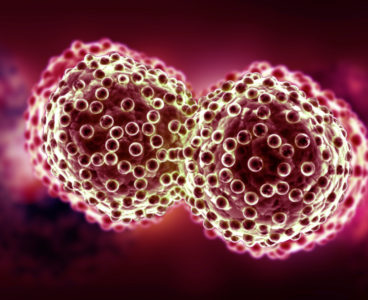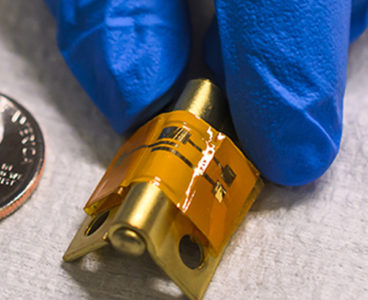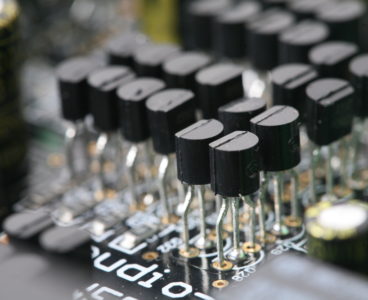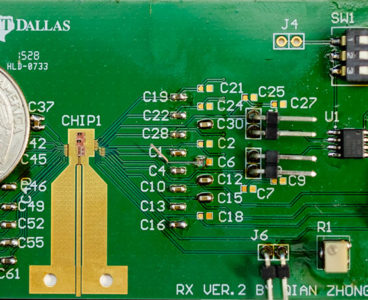Dr. Bhavani Thuraisingham, a professor of computer science at The University of Texas at Dallas and one of the world’s leading experts in data security and data mining, has been elected a fellow of two highly prestigious international technology organizations. Thuraisingham, the Louis A. Beecherl Jr. Distinguished Professor and executive director of the Cyber Security Research and…
Heat-Conducting Crystals Could Help Computer Chips Keep Their Cool
Mother-of-Pearl Inspires Strong, Super-tough Carbon Sheets
An international research team led by scientists at Beihang University in China and The University of Texas at Dallas has developed high-strength, super-tough sheets of carbon that can be inexpensively fabricated at low temperatures. The team made the sheets by chemically stitching together platelets of graphitic carbon, which is similar to the graphite found in…
Better Batteries Cut Down on Charge Time
Development of stable lithium-sulfur batteries — which hold more charge than common lithium-ion batteries — could cut back on how often mobile devices need to be charged. They die at the most inconvenient times. Cellphones go dark during important conversations because a battery hasn’t been recharged. Or the automotive industry revs up with excitement for…
Researchers Charge Ahead to Develop Better Batteries
Breakthrough Microscopic Discovery Could be a Huge Time-Saver
A University of Texas at Dallas graduate student, his advisor, and industry collaborators believe they have addressed a long-standing problem troubling scientists and engineers for more than 35 years: How to prevent the tip of a scanning tunneling microscope from crashing into the surface of a material during imaging or lithography. Details of the group’s…
Nanoparticle Study Offers Better Understanding of Kidney Function
New research findings from The University of Texas at Dallas unveil how kidneys filter ultra-small engineered particles, which may lead to new ways of developing targeted therapy for the detection and treatment of kidney diseases and cancers. The team, led by Dr. Jie Zheng, associate professor of chemistry in the School of Natural Sciences and…
Researchers Devise Decoy Molecule to Block Pain Where it Starts
For anyone who has accidentally injured themselves, Dr. Zachary Campbell not only sympathizes, he’s developing new ways to blunt pain. “If you have ever hit yourself with a hammer, afterward, even a light touch can be painful for days or even weeks,” said Campbell, who researches pain on the molecular level at The University of…
No Batteries Required: Energy-Harvesting Yarns Generate Electricity
An international research team led by scientists at The University of Texas at Dallas and Hanyang University in South Korea has developed high-tech yarns that generate electricity when they are stretched or twisted. In a study published in the Aug. 25 issue of the journal Science, researchers describe “twistron” yarns and their possible applications, such as…
New Material May Help Cut Battery Costs for Electric Cars, Cellphones
In the battle of the batteries, lithium-ion technology is the reigning champion, powering that cellphone in your pocket as well as an increasing number of electric vehicles on the road. But a novel manganese and sodium-ion-based material developed at The University of Texas at Dallas, in collaboration with Seoul National University, might become a contender,…
Bioengineers Create More Durable, Versatile Wearable for Diabetes Monitoring
Researchers at The University of Texas at Dallas are getting more out of the sweat they’ve put into their work on a wearable diagnostic tool that measures three diabetes-related compounds in microscopic amounts of perspiration. “Type 2 diabetes affects so many people. If you have to manage and regulate this chronic problem, these markers are…
Engineer Unveils New Spin on Future of Transisters with Novel Design
Scientist Discovers New Cancer Connections
Bioengineers Develop Sweat-Based Sensor to Monitor Glucose
Researchers at The University of Texas at Dallas are sweating the small stuff in their efforts to develop a wearable device that can monitor an individual’s glucose level via perspiration on the skin. In a study recently published online in the journal Sensors and Actuators B: Chemical, Dr. Shalini Prasad, professor of bioengineering in the Erik…
Sensors Sweat the Small Stuff
Researchers at The University of Texas at Dallas are sweating the small stuff in their efforts to develop a wearable device that can monitor an individual’s glucose level via perspiration on the skin. In a study recently published online in the journal Sensors and Actuators B: Chemical, Dr. Shalini Prasad, professor of bioengineering in the…
Researchers Use Novel Materials to Build Smallest Transistor
Electronic Nose Could Be Next Everyday Device
Researchers at the Texas Analog Center of Excellence (TxACE) at UT Dallas are working to develop an affordable electronic nose that can be used in breath analysis for a wide range of health diagnoses. While devices that can conduct breath analysis using compound semiconductors exist, they are bulky and too costly for commercial use, said…

